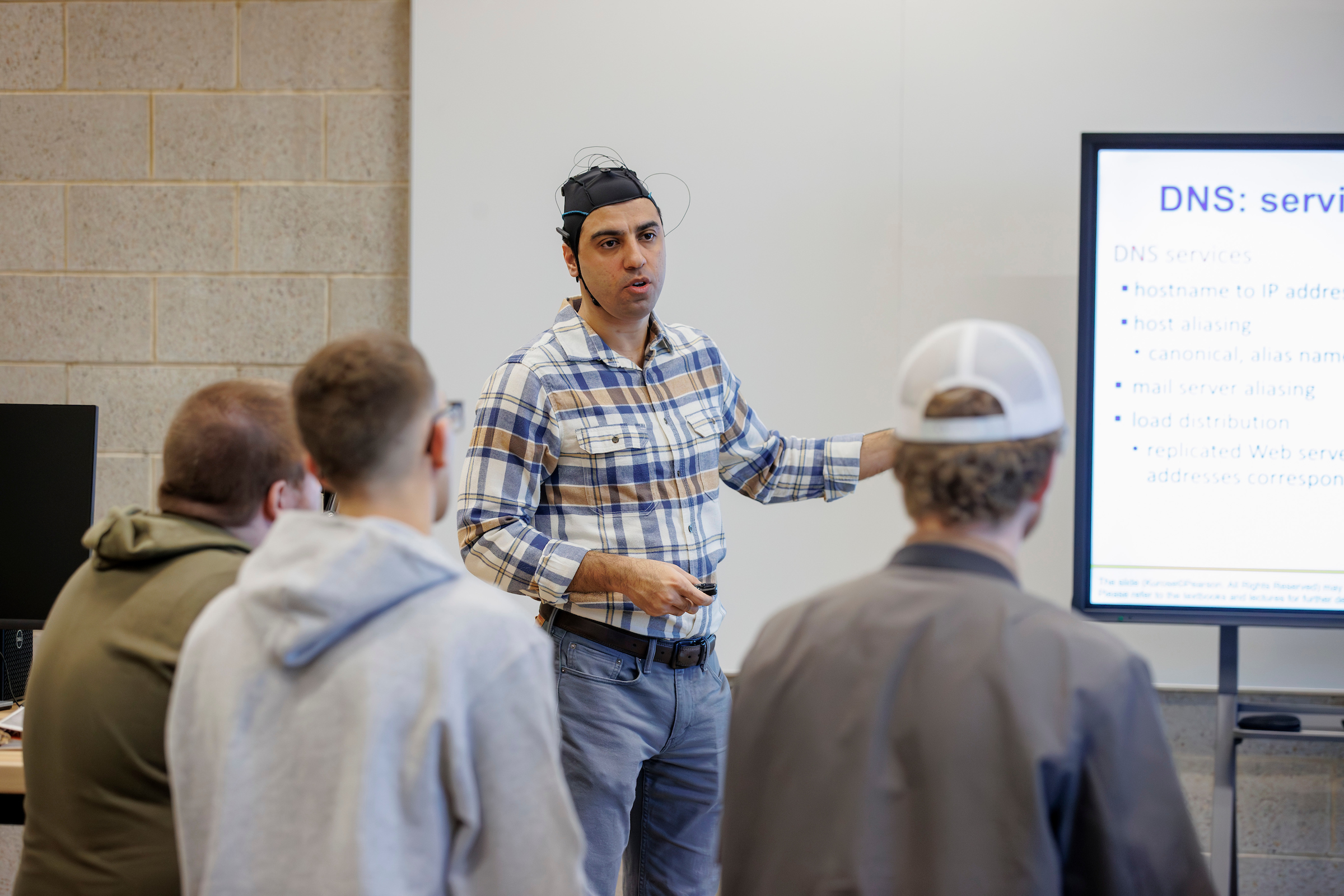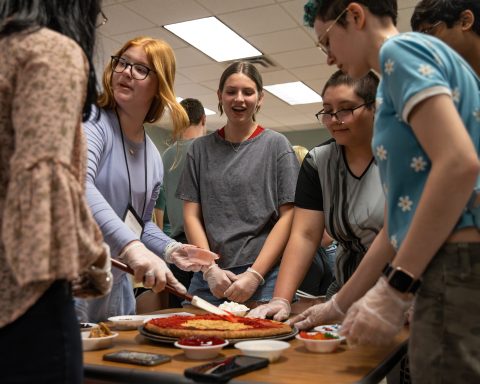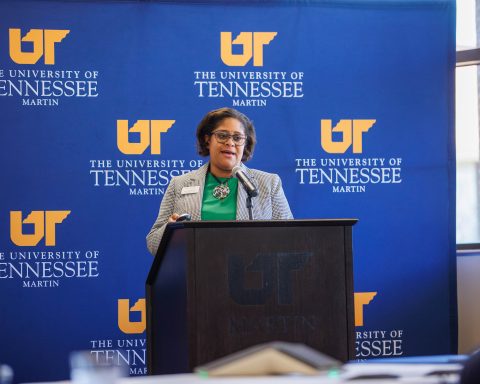The University of Tennessee at Martin is one of only four American locations among 19 worldwide to play host to the 2024 Virtual BR41N.IO Hackathon.
UT Martin is participating for the first time in this collaborative marathon designed to be a transformative learning experience for technology developers, engineers, students, artists and scientists in the field of brain-computer interfaces, or BCI, or brain-machine interfaces, or BMI.
The BR41N.IO Hackathon seeks to encourage collaboration, innovation and the exploration of the vast possibilities that BCI technologies offer in motor rehabilitation of stroke patients, control of devices for disabled people and cognitive training, gaming, programming, data analysis and artistic endeavors.
The Hackathon series was created as an education, research and development opportunity focused on BCI. Uniting students, scientists, programmers, engineers and enthusiasts, the Hackathon encourages collaborative teamwork where participants undertake the challenge of programming or constructing their own fully functional BCI.
The Hackathon brings together interested people to collaborate as a team. They program or build their own fully functional BCI project to control a drone, a Sphero or e-puck robot.
Anyone interested in robotics, BCI or BMI, virtual reality, human-machine interface systems and related subjects can take part in the Hackathon.
Dr. Saman Sargolzaei (pronounced “SAR-goal-zee”), assistant professor of engineering, is the local point of contact for the Hackathon, and he compared brain-machine interfaces with an experiment to link the brain to phones and other devices.
“The best example of this is: You may have heard about Neuralink with Elon Musk,” he said. “They’re trying to implant a chip into the brain and they’re currently running their first clinical trial.”
The Hackathon is not as direct as that. In the Hackathon, participants wear a cap on their head with non-invasive electrodes that read brain activity.
“When our brain functions, it’s all about exchanging some chemical material in neurons in the brain,” Sargolzaei said. “It is generating an electrical signal that you can pick up in your scalp. From those readings, you try to train a machine or train a computer or train a wheelchair.
“We are learning about controlling your favorite game character or making in-game decisions using your thoughts, composing your music and modifying tunes with brain waves, interacting with a dynamic art installation or experience an interactive storytelling, enhancing your study habits by letting your brain tell you to take a break because you’re apparently distracted, and so on.”
Sargolzaei said a broad application would be for disabled people and helping them enjoy life more.
The BR41N.IO Hackathon began in 2017. Participants in the Hackathon may join a suggested project or develop their own project and participate from their homes or wherever they wish.
The UT Martin Brain Autonomy and Resiliency Lab will provide on-site access to EEG devices and brain-computer interface technology that you need for programming projects.
“There are hosting institutions for this across the globe: The Netherlands, Austria, Australia, Denmark, Germany, Canada and Mexico,” Sargolzari said. “Anyone who is interested in this kind of technology can form a team or join an existing team. Those teams will meet on different platforms, depending on their interest. Teams can consist of any number of participants.
“They’re going to start working on their project until April 27-28, when they’re going to present their project to an international jury.”
The top three winners in each category will win cash prizes: $1,000 for first place, $600 for second place and $400 for third place. The categories are gaming projects, data analysis and programming and artistic projects.
“As a hosting institution, we provide access to the devices and equipment for these EEG (electroencephalograph) machines that can read brain waves,” Sargolzaei said. “The participants can write programs for different purposes that they want to work on.”
There is no entry fee or admission charge to take part in the Hackathon. Other American locations serving as hosting sites are the Rochester Institute of Technology and Union College of New York state and the Waikiki Sheraton in Honolulu, Hawaii.
For more information about the Hackathon, contact Sargolzaei at ssargolz@utm.edu or visit br41n.io/Spring-School-2024.
Photo: Assistant professor of engineering Dr. Saman Sargolzaei is shown in his classroom wearing the headgear that will be used in the Hackathon.








